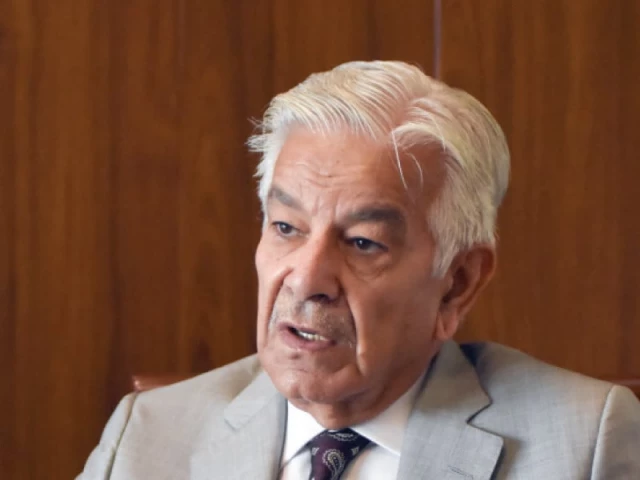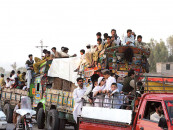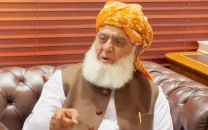Asif warns Indian incursion is 'imminent'
Minister says Pakistan reinforces its defences as India's rhetoric heats up

Defence Minister Khawaja Asif said on Monday that a military incursion by neighbouring India was imminent in the wake of the terror attack on tourists in Indian Illegally Occupied Jammu and Kashmir (IIOJK), as tensions between the two nuclear-armed nations threaten to boil over.
"We have reinforced our forces because it is something which is imminent now. So in that situation some strategic decisions have to be taken, so those decisions have been taken," the defence minister told Reuters during an interview at his office in Islamabad.
Asif noted that India's rhetoric was heating up and that Pakistan's military had already briefed the government about the possibility of an Indian attack.
He stopped short of sharing further details about why he believed an incursion was around the corner.
The defence minister said Pakistan was on high alert and made clear that its nuclear weapons arsenal would only come into play if "there is a direct threat to our existence".
'Misinterpreted remarks'
However, addressing 'misinterpretations' of his remarks separately on a private news channel, Asif said his earlier comments about the possibility of conflict should not be seen as a definitive prediction of war in the next two to four days.
"When they asked me about the chances of war, I said if something is to happen, it would happen in the next two to four days, otherwise, the immediate threat would subside," he clarified.
"My statement should not be misunderstood as a clear forecast that war would break out within two or three days. I only stated that the coming days would be critical."
He added that while there was certainly a danger of conflict, tensions might also de-escalate. "All three armed forces are standing ready for the country's defence," he asserted.
Speaking about India's actions after the attack, the defence minister said that Pakistan would approach the World Bank if India attempted to suspend the Indus Waters Treaty.
He warned that India could not unilaterally divert river waters without violating international agreements. "We are considering different options in case the Indus Waters Treaty is violated. Geography itself does not permit India to divert the river flows," he added.
Accusing India of supporting terrorism within Pakistan, Asif said: "We have evidence that India is backing the Balochistan Liberation Army (BLA) and Tehreek-e-Taliban Pakistan (TTP)".
He maintained that if India were truly confident of its claims regarding the Pahalgam attack, it should allow an international investigation.
"Modi's ground politics is weak, and that's why he resorts to such tactics," Asif said, adding, "The trap Modi set for others has ensnared him."
The April 22 attack, which left 26 people dead, mostly tourists, ranks among the deadliest assaults in the disputed Himalayan region since 2000.
Kashmir Resistance, also known as The Resistance Front, later walked back its initial claim of responsibility, "unequivocally" denying involvement.
India, without sharing any evidence, has alleged cross-border linkages to the attackers, a charge that Pakistan has vehemently rejected. Prime Minister Shehbaz Sharif has called for an impartial international investigation to get to the bottom of the incident.
Earlier on Friday, Asif had said that Pakistan was "ready to cooperate" in an international probe into the Pahalgam attack, but warned that any Indian misadventure would be met with an "all-out war".
Meanwhile, reports claimed that since the Pahalgam attack, India and Pakistan have engaged in several exchanges of gunfire along the LoC, a traditionally volatile border.
The latest incident occurred on the night of April 27-28, when the Indian Army claimed that Pakistan initiated "unprovoked small arms fire" across the LoC, with no casualties.
However, it is pertinent to note that Islamabad has not confirmed the exchange.
India has also increased its military preparedness, conducting multiple defence exercises across the country, some of which are routine drills, according to a defence official.
Calls for military action against Pakistan have intensified among Indian politicians and others.
Meanwhile, China on Monday urged both India and Pakistan to "exercise restraint," as the two sides reportedly exchanged fire along the Line of Control for the fourth consecutive night.
The United Nations has also called on the arch-rivals to show "maximum restraint" and to resolve their issues "peacefully through meaningful mutual engagement".
With input from News Desk



















COMMENTS
Comments are moderated and generally will be posted if they are on-topic and not abusive.
For more information, please see our Comments FAQ